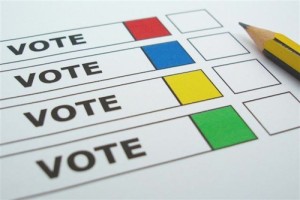Readers: The US Should Convert To The Metric System
The ham we’re serving my husband’s family tomorrow weighs just over 4 kilograms (4,0279kg), or 8.88 lbs in US/Imperial measurements. The instructions say to reheat it at 162.78ºC (325ºF). If we offered soda to drink we’d probably buy it in a 0.52834 gallon bottle (2 liters). They’re driving 155.62Km (96.7 miles) from Springfield IL, the speed limit on I-55 is 112.65kph (70mph), though his uncle will likely won’t exceed 90kph.
Of the above metric units you all likely can relate to a 2 liter bottle of soda, you know how much that is. Why? We’re used to it. Your prescriptions are in milligrams.
So why should America change?
The United States is the last remaining industrialized nation with no formal commitment to going metric. America’s position is causing unnecessary isolation. It’s an impediment to trade and puts the United States at a disadvantage.
Not being metric-fluent can hamper collaboration and communication across borders. And it’s not just annoying, but can add real costs. For example, many US manufacturers need to make two kinds of products for every item — one for here and one for there. Foreign manufacturers also have to modify products just for the US market (or decide that maybe it’s not worth the bother). (Vox)
Below are the results from the Sunday Poll:
Q: Should the U.S. switch to the metric system?
- Yes 14 [58.33%]
- No 9 [37.5%]
- Maybe 1 [4.17%]
- Unsure/no opinion 0 [0%]
Even though converting will be a costly endeavor, I think it’s in our best long-term interests to do so. Money spent building military equipment the Pentagon doesn’t want can be used to create to new highway signs. Of course that means every highway in America, except Arizona’s I-19, will get all new exit numbers. Had president Reagan not disbanded the Metric Board in 1982 we might be fully metric by now.
— Steve Patterson
